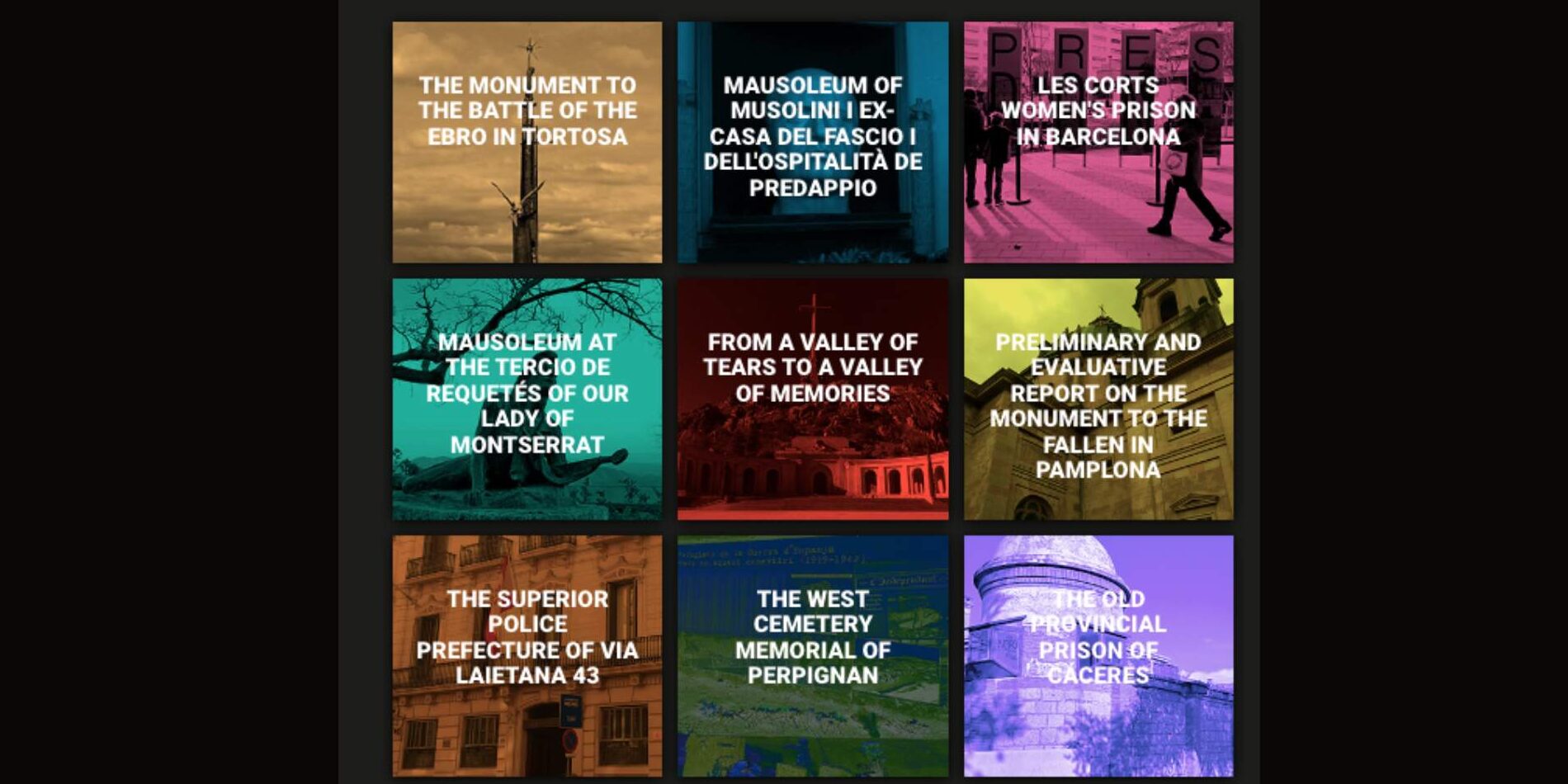Uncomfortable Memories, Dissonant Heritage
The Patrimonios Incómodos website, the EUROM platform dedicated to exploring uncomfortable memories and dissonant heritage, has been updated in 2024 and is now accessible in English and other languages through Google Translate. This initiative investigates how citizens engage with places marked by historical episodes that evoke a shared sense of collective identity.
These spaces often carry diverse meanings depending on social frameworks such as group, generation, gender, or historical context, highlighting ongoing political struggles over which memory should prevail. The platform examines how state interventions transform these locations into public, rather than private, sites of memory, raising challenges about ensuring democratic participation in their creation and preservation. The absence of citizen involvement in these processes can undermine the significance and future of these spaces.
Additionally, the platform addresses the growing impact of cultural tourism on memory sites. While tourism can increase visibility and recognition, it also risks trivialization, overcrowding, and shifts in the intended narratives. This is particularly pertinent for sites with significant memorial weight—such as mausoleums, cemeteries, and mass graves—that often require political or “necropolitical” interventions to balance remembrance with societal needs.
The Patrimonios Incómodos initiative focuses on mausoleums, spaces of mourning, and sites of repression across Europe. By analyzing their transformation into places of public commemoration and their interaction with cultural tourism, the platform uncovers common patterns and unique traits that shape Europe’s complex relationship with its memory landscapes.
New Entries Highlighted
The latest additions to the platform offer in-depth insights into historically significant locations:
- Via Laietana 43 (Barcelona)
Once the headquarters of the Francoist police, this iconic building in central Barcelona embodies a complex and controversial legacy. The report explores its historical significance and the ongoing debates about its role in preserving memory and fostering justice. - The West Cemetery Memorial (Perpignan)
A poignant site honoring victims of war, exile, and resistance. This entry examines its role in cross-border memory and its importance in commemorating those who suffered. - The Old Provincial Prison of Cáceres
A former prison used as a tool of repression during Franco’s dictatorship. The report delves into its historical context and its relevance in contemporary discussions on memory and reconciliation.

